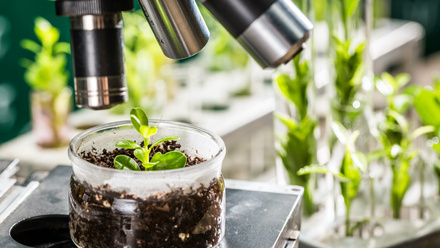Government takes positive steps forwards on gene editing in England
2021-0155
Yesterday, Government announced that it would be moving forwards with gene editing in England, as it responded to the consultation that took place earlier this year. It will liberalise research regulations into the sector, before reappraising the regulatory definitions of gene editing and GMOs.
Full announcement can be found here: https://www.gov.uk/government/news/plans-to-unlock-power-of-gene-editing-unveiled
The planned changes will ease burdens for research and development involving plants, using technologies such as gene editing, to align them with plants developed using traditional breeding methods.
The next step will be to review the regulatory definitions of a genetically modified organism, to exclude organisms produced by gene editing and other genetic technologies if they could have been developed by traditional breeding.
The government will consider the appropriate measures needed to enable gene edited products to be brought to market safely and responsibly. In the longer term, this will be followed by a review of England’s approach to GMO regulation more broadly.
AIC involvement
AIC has been closely following this policy closely, and has been working closely with Defra and industry groups such as the APPG for Science and Technology in Agriculture. It has been a significant effort, achieved through industry and Government collaboration.
You can read the full response AIC provided to the consultation here: https://www.agindustries.org.uk/resource/gene-editing-consultation---response-from-agricultural-industries-confederation.html
As a summary, AIC has three broad themes for future innovation in GE and GMOs:
- Environmental outcomes. Gene editing will allow researchers and AIC members to explore techniques or applications in plant health, livestock feed and seed breeding that can minimise emissions and disease spread, whilst allowing for new varieties or breeds that can adapt to the real challenges of climate change.
- Meeting the needs of consumer and animal nutrition. It is evident that dietary requirements and demands are changing in the UK and around the world. By harnessing innovation, we have an opportunity to address nutritional challenges in crops and livestock, as well as eliminating allergens and helping to reduce food waste.
- Diversity. There has been a growing concern across the UK agricultural sector that the nation’s genetic diversity in crops and livestock is diminishing. We now have an opportunity to fundamentally readdress the possible availability of crop varieties and types available to farmers, which can help the UK food and feed production whilst catering for the wide variety of products that UK consumers are demanding across the food chain. Having the means by which to offer farmers more choice in their cropping options would be of clear benefit.
Next steps
Government will now seek to bring forward primary legislation at a suitable opportunity to amend the regulatory definitions of a GMO to exclude organisms that have genetic changes that could have been achieved through traditional breeding or which could occur naturally. They will also consider the appropriate regulatory measures needed to enable gene edited crops that are equivalent to those produced through traditional breeding to be brought to market.



